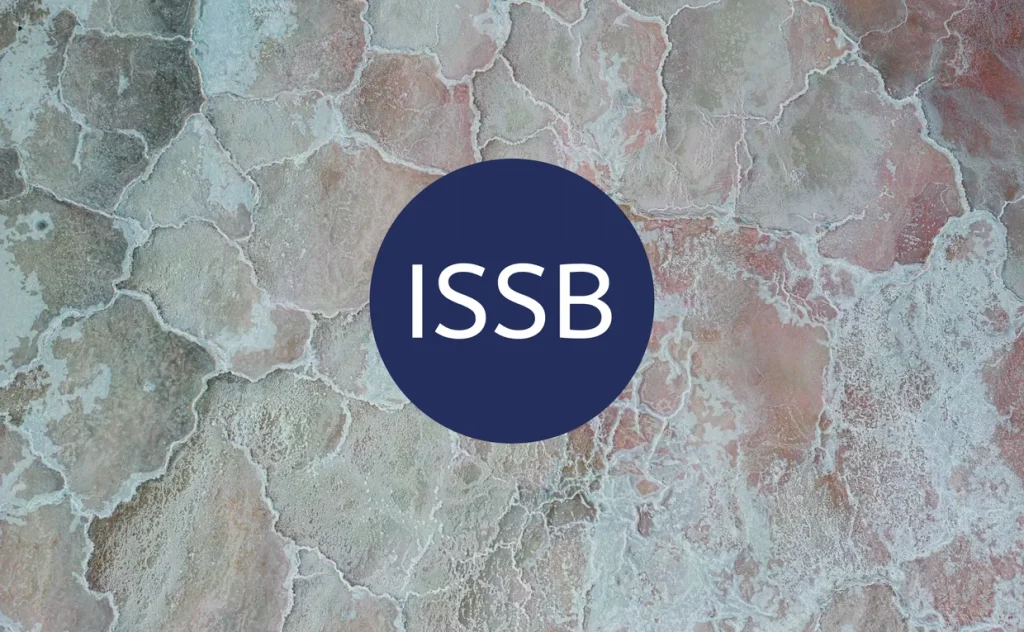ISSB Expands ‘Global Passport’ Framework to Align Sustainability Disclosure across Markets

• Around 40 jurisdictions plan to integrate ISSB Standards into national disclosure frameworks, representing roughly 40% of global capital markets.
• The expanded Jurisdictional Adopters Working Group will align “passporting” provisions to reduce fragmentation and compliance costs for companies.
• Singapore’s revised adoption timeline highlights the balancing act between regulatory ambition and market readiness in emerging economies.
ISSB pushes for global alignment
The International Sustainability Standards Board (ISSB) is expanding its cross-border coordination network to accelerate the global adoption of its sustainability disclosure standards, aiming to prevent regulatory fragmentation as governments begin to integrate climate-related reporting into capital markets.
Speaking at the IFRS Sustainability Symposium in London on October 30, ISSB Chair Emmanuel Faber announced a “significant expansion” of the Jurisdictional Adopters Working Group, which brings together regulators from nearly 40 jurisdictions now planning to embed the ISSB’s IFRS S1 and S2 standards into domestic frameworks. The initiative, he said, will enable the ISSB Standards to function as a “global passport” for sustainability reporting, easing the path for multinational firms to meet disclosure rules across borders.
According to the ISSB, the goal is to create mechanisms that allow jurisdictions to accept sustainability reports prepared under the ISSB framework while accommodating local adjustments where necessary. This approach, referred to as “passporting,” is designed to reduce duplication, cut compliance costs, and improve the comparability of sustainability data used by investors.
Addressing the risk of fragmentation
The ISSB’s expansion comes amid growing concern over inconsistent national implementation of climate-related reporting requirements. While more than 40 countries have announced plans to use the ISSB Standards—covering markets representing roughly 40% of global capitalisation—differences in timing, coverage, and local regulatory expectations risk undermining the board’s vision of a unified baseline.
“The ISSB Standards are being firmly established as the global baseline,” Faber told delegates from over 45 jurisdictions. “We are committed to maximising the benefits they offer to investors and preparers alike.”
The board’s new working group is intended to formalise multilateral discussions between regulators and standard-setters to manage this convergence. By coordinating on passporting provisions, regulators hope to ensure that disclosures made in one market can be recognised in others, provided they adhere to the same core principles on governance, strategy, risk management, and metrics.
Singapore adjusts its timeline
Singapore provides a case study of how markets are pacing their transition. The city-state’s financial regulator, Singapore Exchange Regulation (SGX RegCo), announced in September 2024 that it would begin incorporating the ISSB Standards into its reporting regime. Yet less than a year later, in August 2025, SGX RegCo and the Accounting and Corporate Regulatory Authority (Acra) extended the implementation timeline for smaller listed companies by five years.
Under the revised framework, Straits Times Index (STI) constituents—Singapore’s 30 largest firms—must still report Scope 1 and 2 emissions and other ISSB-aligned climate disclosures from FY2025, followed by Scope 3 disclosures from FY2026. Large non-STI firms, defined as those with a market capitalisation above S$1 billion, will follow the same schedule.
However, smaller listed companies with a market capitalisation below S$1 billion now have until FY2030 to comply fully, and their Scope 3 reporting remains voluntary. The regulators cited cost burdens and data-collection challenges for delaying the requirement.
RELATED ARTICLE: ISSB Proposes Relief for Scope 3 Reporting Requirements in Financial Sector
Balancing ambition and practicality
The phased approach illustrates a broader challenge facing many jurisdictions: aligning corporate readiness with the pace of regulatory ambition. For multinational investors, the Singapore example highlights how ISSB adoption will likely advance in waves, reflecting different market maturities and disclosure capacities.
The ISSB’s passporting framework aims to ease these frictions by ensuring interoperability between national systems while maintaining consistent disclosure quality. For preparers, this could mean less duplication when reporting to investors in multiple jurisdictions. For policymakers, it represents a pathway to accelerate convergence without mandating full uniformity.
Toward a cohesive global disclosure system
As the ISSB Standards gain ground, their role in shaping global capital markets is becoming increasingly pronounced. By establishing a shared language for climate and sustainability disclosures, the ISSB framework is intended to help investors compare performance across borders and strengthen market discipline around environmental and governance risks.
With nearly 40% of global capital markets already covered by jurisdictions adopting or aligning with ISSB Standards, the coming years will test whether the “global baseline” can function in practice as the connective tissue of sustainability reporting. The board’s next challenge lies in maintaining momentum among early adopters while supporting emerging economies in building the capacity to meet rising expectations—ensuring that sustainability reporting becomes not just global in scope, but effective in execution.
Follow ESG News on LinkedIn












